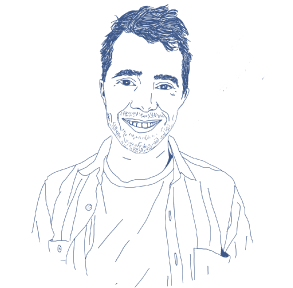How to Spread Freedom for All
The Fourth of July is a great time to celebrate the United States’ independence from Britain. But it’s also a good time to remember that the freedoms enjoyed by some Americans has always been unevenly distributed.
From slavery and the genocide of Indigenous People through modern day mass incarceration and immigration restrictions, the U.S. still struggles to be “the land of the free.”
This Fourth of July, here are four suggested ways you can donate or get involved in spreading access to the freedoms that are easy for many of us to take for granted.
Help make America more welcoming
The National Immigration Law Center offers pro-bono legal services to immigrants and asylum seekers, especially those with low incomes. The center helps immigrant families access health care, understand workers’ protection laws, file taxes and more. In recent years, NILC has been particularly instrumental in assisting immigrants granted resident status under Deferred Action for Childhood Arrivals (DACA) as the program faces uncertainty.
Help make American justice more humane
The National Religious Campaign Against Torture lobbies for improved conditions of confinement in American jails and prisons, both domestically and abroad. NRCAT is among the most vocal opponents of solitary confinement. Although segregating incarcerated people alone in cells for 23 hours a day continues to be a wide-spread practice, there is growing momentum to end it. United Nations Special Rapporteur on Torture Juan Mendez has called for a ban on solitary confinement, and several U.S. states have begun to limit its use.
Help ensure fair, due process in the criminal justice system
Volunteer with Court Watch NYC or start a court watch group in your county. One of the good parts of our criminal justice system is that almost every phase of its legal processes involves a public hearing. From arrest to sentencing and through appeals, defendants are entitled to their day in court. Still, what happens in courtrooms often goes unseen by the general public. In many places, there are not even journalists observing court proceedings. Court Watch NYC is a collaborative project that trains volunteers to be the eyes and ears in New York City Courtrooms and collect data that can be used to hold prosecutors accountable. Court Watchers monitor, among other things, bail amounts, the treatment of children tried as adults, and the handling of immigrants charged with crimes. Best of all, their model is replicable for those of us who don’t live in New York City. You can start a court watch group in any jurisdiction, and you might be shocked at what is happening in the name of keeping your community safe.
Help Indigenous People of the U.S. access clean water
It’s 2018 yet some Americans still don’t have clean drinking water readily available. Conditions are particularly bad on Native American reservations. Donations to groups like Dig Deep and the Navajo Water Project go 100 percent toward sponsoring water and solar power systems for Indigenous People.
About the Author
Cameron Kakinc-Dodd is a journalist and local newspaper reporter whose work currently focuses on criminal justice, court systems and the law. He’s also reported on immigration, indigenous peoples, geopolitics and much more. Broadly, Cameron is interested in understanding power and the systems limiting the ability of people and communities to live healthy, happy, and dignified lives.




